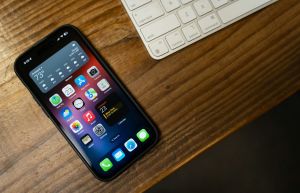The most anticipated Disney movie is now released, but the excitement has dwindled, and some are calling for the boycott of the movie.
The controversy
Hong Kong's pro-democracy activists are calling for people to boycott the Disney film, and now activists in Taiwan and Thailand have joined in, according to The Washington Post.
The calls started last year when the lead actress of the film, Liu Yifei, expressed her support for Hong Kong police, who anti-government demonstrators accuse of using excessive force to quell unrest.
Prominent Hong Kong activist Joshua Wong tweeted on September 4 that Disney is tied to Beijing and Liu Yifei openly and proudly endorses police brutality in Hong Kong. Wong added that he urge everyone who believes in human rights to boycott the film.
Liu Yifei, a Chinese-born US citizen, talked about the protest in Hong Kong last year, which began as a peaceful demonstration and eventually changed into frequent clashes between protesters and police.
In August 2019, the actress wrote on Weibo "I support the Hong Kong police. You can all attack me now. What a shame for Hong Kong."
Yifei's post immediately garnered attention and received 78,000 likes in less than a day and was retweeted more than 70,000 times, as reported by NBC News.
Calls to boycott "Mulan" followed immediately after she posted the comment and #BoycottMulan was trending on Twitter, a social media app that is banned in China.
Meanwhile, comments on Yifei's post on Weibo, which is the dominant social platform in China, echoed her support for Beijing and Hong Kong police.
The movie's international audience
The movie's initial release date was March 27, 2020, but it was moved due to the coronavirus pandemic. "Mulan" is now out on Disney+ in the United States and is set to hit theatres soon. International audiences, especially in China, are a key part of the film's theatrical strategy.
However, tensions are still high in Hong Kong after Beijing imposed a controversial and inhumane national security law on the city in June.
Hong Kong has 7 million residents and is overshadowed by China's 1.4 billion residents. However, those pushing for the boycott of the movie could gain support from other countries, especially those who are sympathetic to the pro-democracy movement.
The calls to boycott "Mulan" has now spread to other activists, particularly in Thailand and Taiwan, propelled in large part by the #MilkTeaAlliance, which is an online movement uniting pro-democracy protesters in Hong Kong, Taiwan and Thailand with concerns about China's influence in the region.
In the past few weeks, Thailand has also been demonstrating, with thousands of people calling for reforms of Thailand's monarchy.
Thousands of protesters in Hong Kong have expressed support for the movement, while protesters in Thailand and Taiwan are standing with those in Hong Kong who are calling to boycott the movie.
Thai student activist Netiwit Chotiphatphaisal tweeted, "I invite everyone to #boycottMulan #banMulan to make Disney and the Chinese government know that state violence against the people is unacceptable," according to The Guardian.
However, in China, where people were supportive of Yifei's comments, "Mulan" is expected to be a massive hit with audiences. The film is set to open in theatres in China on September 11.
© 2026 HNGN, All rights reserved. Do not reproduce without permission.








